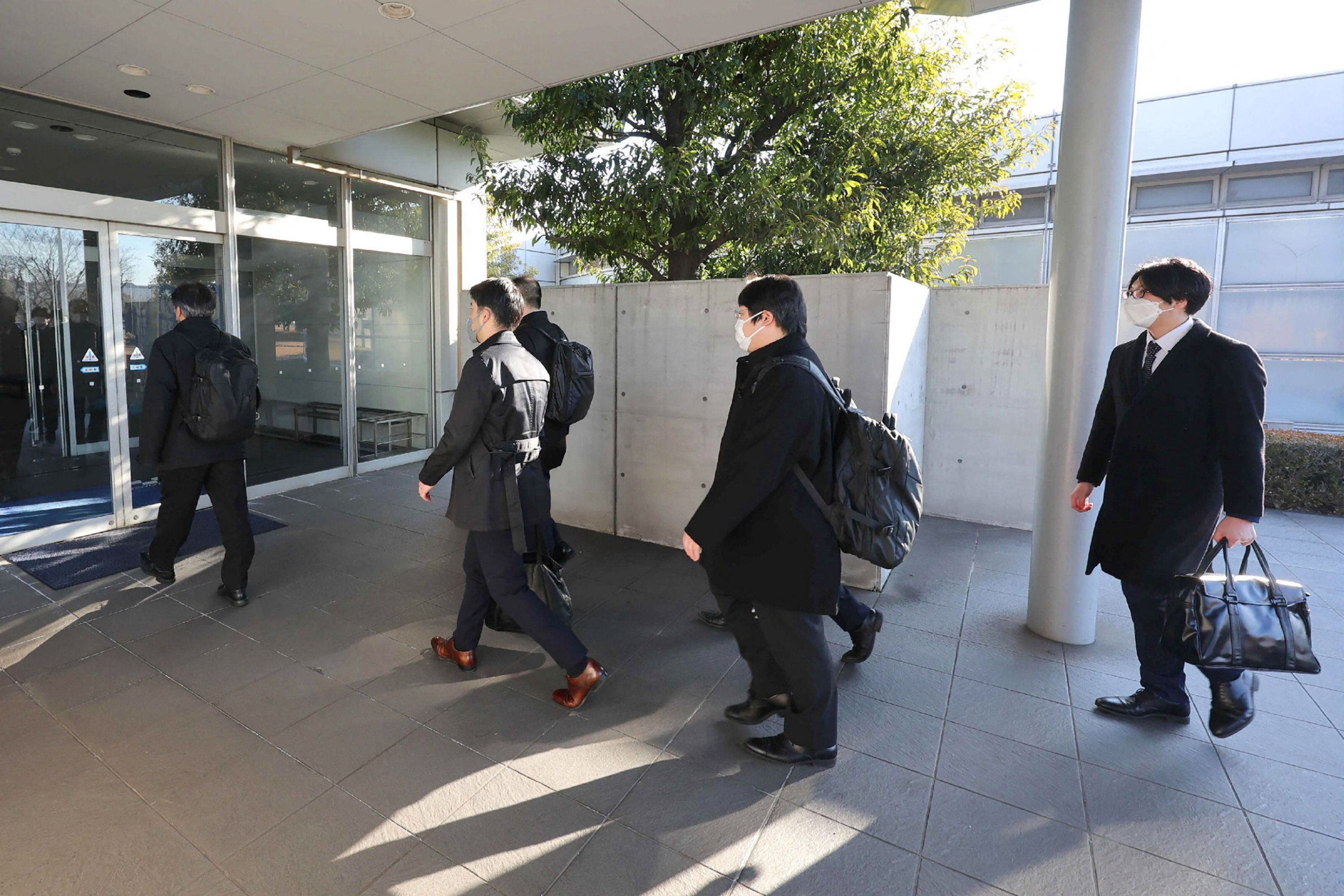© Turkuvaz Haberleşme ve Yayıncılık 2024
Japanese transport officials raided a Toyota-affiliated plant on Tuesday after the company admitted to cheating on engine testing, as the firm reported it maintained its status as the world's top automaker in 2023, selling 11.2 million vehicles.
Hours after the probe began at Toyota Industries Corp.'s plant in Hekinan, Aichi Prefecture, central Japan, Toyota Chairperson Akio Toyoda vowed to steer the company out of scandal and ensure the Japanese automaker sticks to "making good cars."
"My job is to steer the way for where the overall group should go," Toyoda said.
He apologized, bowing deeply and stressed the group vision was rooted in the Toyoda founding family's ideas of empowering the "genba," or the workers on the plant floor, "to make good cars that lead to people's happiness."
The testing scandal comes at a time of otherwise stellar performance for Toyota, which makes the Camry sedan, Prius hybrid and Lexus luxury models. Its group global vehicle sales for 2023 were a record 11.22 million units, up 7% from the previous year and topping Volkswagen AG Germany's global sales of 9.2 million vehicles.
Toyoda spoke in a news conference that was live-streamed from a memorial hall in Nagoya that serves as a museum for the founding family. Sakichi Toyoda invented the automated weaving loom. His son Kiichiro Toyoda, Akio's grandfather, founded Toyota Motor Corp.
Reporters were called late Monday to Toyota's Tokyo office, where its CEO Koji Sato, who succeeded Toyoda, apologized for the latest mess: flawed testing at Toyota Industries Corp., which makes diesel engines.
That followed the discovery by a whistleblower that Daihatsu Motor Corp. had been cheating on its testing for decades. Daihatsu makes small cars and is 100% owned by Toyota.

In 2022, Hino Motors, a truck maker that's also part of the Toyota group, said it had systematically falsified emissions data dating back as far as 2003.
No major accidents have been reported in connection with any of the cheating. But production has been halted on some of the models, including the 10 models affected by the latest cheating.
Japan's business daily Nikkei reported the alleged violations at Toyota Industries occurred because management would not listen to workers who had questioned an overly aggressive development plan for engines.
Sato has acknowledged that Toyota group companies need better communication and education about complying with rules.
The latest problem affects models including Land Cruiser and Hilux sport utility vehicles sold in Japan, Europe, the Middle East, Africa and Asia, but not in North America.
In an unrelated quality problem, Toyota and General Motors Co. told owners of about 61,000 older Corolla, Matrix, RAV4 and Pontiac Vibe models, mostly in the United States, to stop driving them because their Takata airbag inflators are at risk of exploding and hurling shrapnel.
The urgent warning Monday covers certain Corolla compact cars and Matrix hatchbacks from the 2003 and 2004 model years, as well as the RAV4 small SUV from 2004 and 2005. Also covered are about 11,000 Pontiac Vibes from 2003 and 2004, which are essentially the same as the Matrix and were made at the same California factory.
Missteps at automakers often are related to pressures to bring down costs, said Daisuke Uchida, a professor at Keio University who specializes in corporate governance.
"Something may have gotten lost in translation in the communication between management and those working on the ground," Uchida said.
Analysts say the impact on Toyota's earnings from the group companies' problems is likely to be limited because their sales and profits are a small fraction of Toyota's overall global earnings.
Toyoda did not present a concrete plan for action but instead mused on the humble roots of his family business and the importance of believing in invention.
Toyota has weathered turbulent times in the past, he said.
"We must never lose sight of where we all began."
